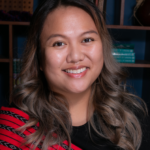Session Description
The rapid rise of online learning creates an imperative for teaching strategies that support student success. Research consistently shows that students’ self-regulatory skills are suboptimal (DiFrancesca, 2016). Online students in particular often lack skills to effectively self-regulate their academic behavior such as time management (Broadbent, 2015).
Fortunately, students’ self-regulating behaviors may change through intervention (Cazan 2013). Interventions address intention-action gaps, such as when learners set goals without achieving them (Yeomans & Reich, 2017) or when they procrastinate (van Eerde, 2018). One strategy for addressing intention-action gaps is the use of nudges (Thaler, 2009), which help individuals make decisions in their own best interest without coercion (Hargreaves, 2011). Nudges, such as reminders, feedback, and warnings have been shown to promote behavior change (Weinmann, 2016) and improve student outcomes (Damgaard, 2018).
This presentation will share findings from a survey of 455 undergraduate students in an asynchronous online course. The survey gauged student perceptions of personalized, informational nudges delivered in the form of “progress check-ins.” Check-ins were sent by instructors via email throughout the semester and provided students with current course progress and suggestions for actions to improve their grades.
Implications will be discussed and a discussion period will encourage attendees to share their relevant experiences.
Presenter(s)
Ariana Eichelberger
University of Hawaii at Manoa
 Faye Furutomo
Faye Furutomo
University of Hawaii at Manoa
Faye Furutomo is a program and project manager specializing in web and online learning projects at the University of Hawaiʻi at Mānoa, College of Education, and leads the college’s Distance Course Design & Consulting group. She is a Ph.D. candidate in Learning Design & Technology at the University of Hawaiʻi at Mānoa, and has earned an M.B.A. and B.F.A. from the University of Hawaiʻi at Manoa and a B.A. from Wheaton College in Wheaton, Illinois. Her research interests include technology innovation in higher education, online learning and organizational culture.
 Daniel Hoffman
Daniel Hoffman
University of Hawaii, Honolulu
Dan Hoffman is an Assistant Professor of Learning Design & Technology at the University of Hawaii at Mānoa. He is a passionate educator and researcher in the field of digital learning. He is a former K-12 teacher researching interactive experiences and their impact on learning. He is currently the coordinator for AECT's International Division's Professional Development Committee, as well as an Associate Editor for the IAFOR Journal of Education's special issues on Technology in Education.
Paul McKimmy
University of Hawaii, Honolulu

 Mark Curcher
Mark Curcher Chris Smith
Chris Smith Katherine Watson
Katherine Watson Sarah Espinosa
Sarah Espinosa Patrick Agullana
Patrick Agullana Rebecca Carino-Augustin
Rebecca Carino-Augustin Shauna Sibonga
Shauna Sibonga Natalie Perez
Natalie Perez Sergio Brenes Pereira
Sergio Brenes Pereira Charlene van der Spuy
Charlene van der Spuy Joseph Dudley
Joseph Dudley Daniel Strocchia
Daniel Strocchia Mary Dereshiwsky
Mary Dereshiwsky Chareen Snelson
Chareen Snelson Kim Frost
Kim Frost Richard Webb, Ph.D.
Richard Webb, Ph.D.